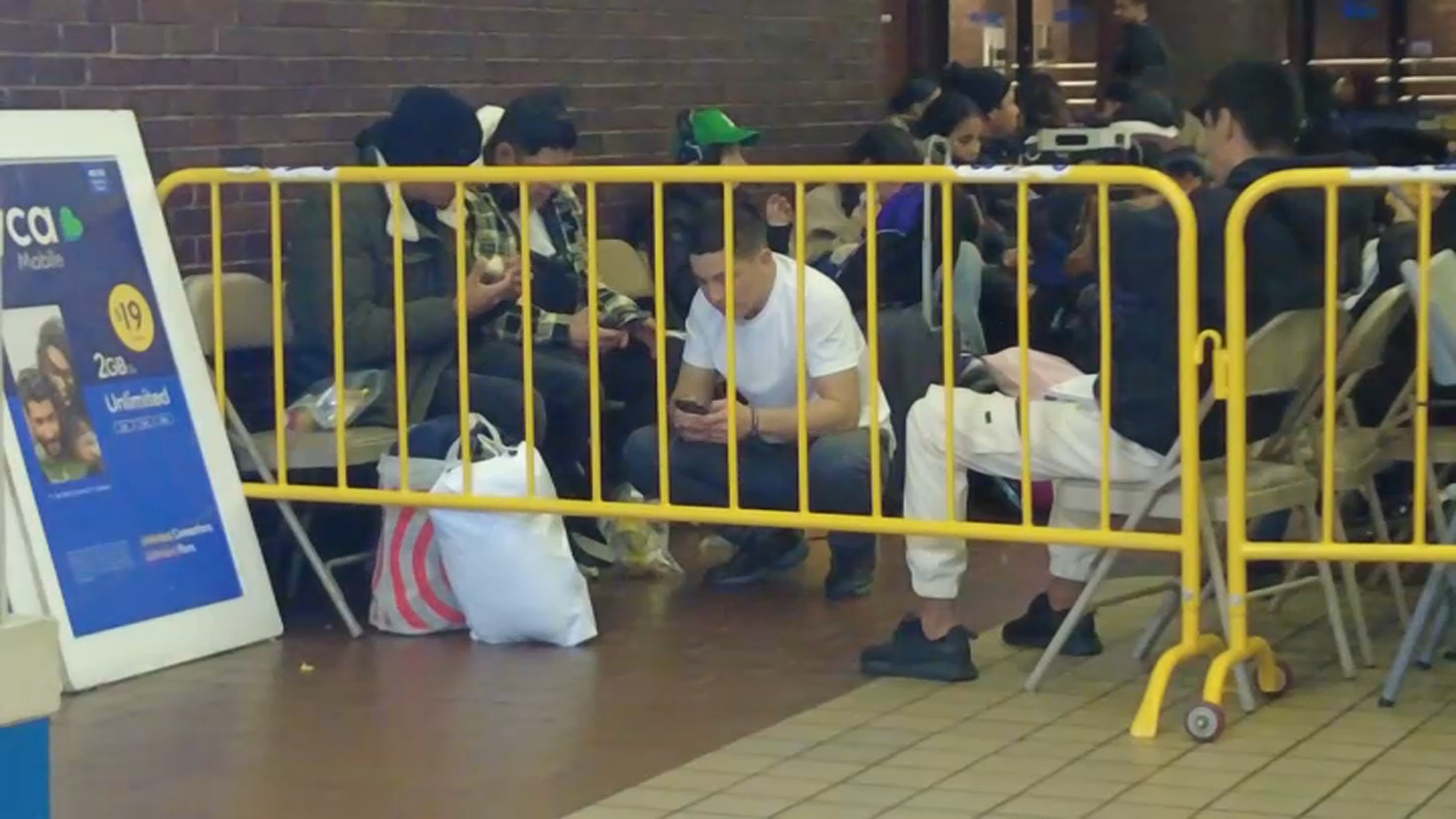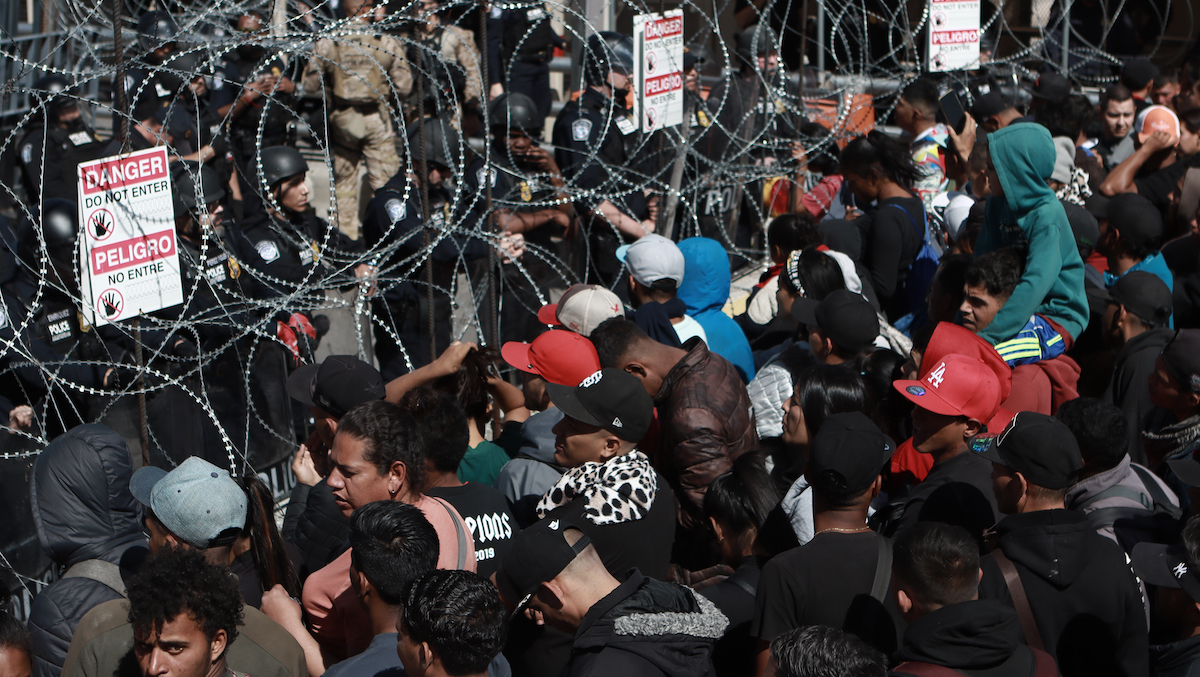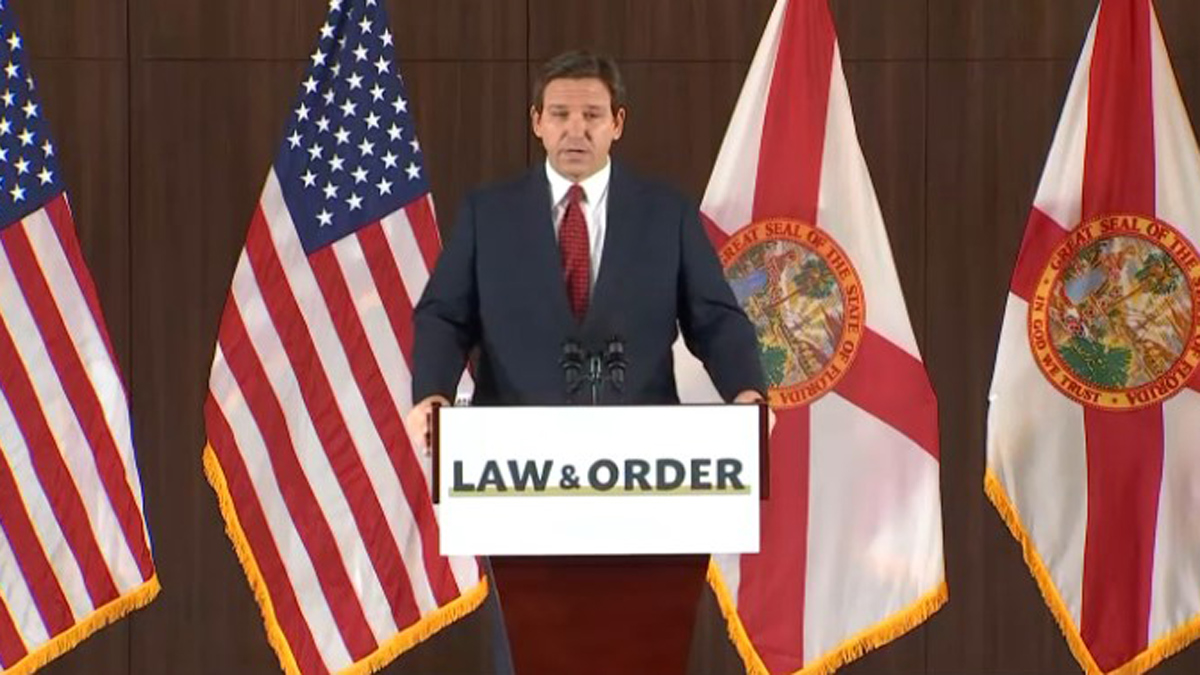The White House tells the I-Team there are no imminent plans to put tens of thousands of penniless asylum seekers in the U.S. on a faster track to legal jobs. The statement comes as some of President Biden's fellow Democrats are pushing the administration to take action on the issue, citing the soaring local costs of shelter, businesses desperate for workers, and migrants desperate to work.
"I have a family to support and a mother who is sick," says Eduardo Espinoza, an asylum seeker from Venezuela who is now living in a Brooklyn shelter.
Pictures and videos show Espinoza, a baseball fan, wore his Yankees cap on his arduous, five-month-long journey. He says many migrants are shocked when they hit U.S. soil and learn it would likely take less time to walk back and forth to Venezuela again, than to get a legal work authorization card.
Get Tri-state area news and weather forecasts to your inbox. Sign up for NBC New York newsletters.
"It's months of extra waiting that are completely unnecessary," says Rep. Dan Goldman, describing the federal law that requires asylum seekers to wait five months to apply for working papers and six months before they can become eligible.
Democrats in House and Senate leadership tell the I-Team that the Biden administration could instantly eliminate that wait for certain groups, including Venezuelans like Espinoza. The president has the authority to grant something called Temporary Protected Status (TPS), which exempts an asylum seeker from the 180-day federal waiting period for work eligibility.
A spokesman for Senate Majority Leader Chuck Schumer told the I-Team Thursday that Schumer believes the Biden administration should extend TPS to recently arrived Venezuelans seeking asylum.
When I-Team asked the White House whether they support efforts to shorten the wait, spokesman Seth Schuster said Thursday, "We do not have any TPS announcements to make or preview," and referred the I-Team to the Department of Homeland Security.
"I wish we could have more success with the Biden administration," said Congresswoman Chellie Pingree of Portland, Maine, where caring for 2,000 newly arrived migrants is straining resources. With no action from Biden, Rep. Pingree wants Congress to cut the wait from 180 to 30 days. But several Democrats acknowledge the odds of Pingree's bill passing the House are slim to none.
"The system is strained and you're not gonna fix it with a Band-Aid," says Republican Congressman Mike Lawler, saying the greater need is to secure the border and deal with more than 11 million undocumented people living in the U.S. Lawler says shortening the wait for work permits may make sense, but only as part of a more comprehensive immigration reform deal.
Republicans, including Staten Island Rep. Nicole Malliotakis, also argue that the vast majority of those entering the country do not have legitimate asylum claims and that fast access to work permits would incentivize individuals to enter illegally.
"They are inundating our immigration system and hurting other immigrants who followed the legal process. NYC's ICE office now says it cannot process any more individuals for the next decade," Malliotakis said.
The I-Team interviewed some asylum seekers who showed ICE documents showing their next check-in appointment is in the year 2027, but immigration attorneys say they have seen clients with check-in dates as late as 2032.
Under federal law, asylum seekers cannot start the six-month wait until after they have filed their asylum claim, itself a complicated and expensive process that can take almost a year. After that, the work authorization cards often arrive well after the six month waiting period, because of backlogs.
"The president could do it immediately," says Lenni Benson, an immigration professor at New York Law School who also founded the Safe Passage Project, which provides free legal services to immigrants. But Benson notes: Even if the president bestowed TPS on migrants, making them immediately eligible to work, he would still need to dedicate resources to clear up backlogs in the bureaucracy.
"The delays are chilling. And people will not receive the documents they need to prove that they're lawfully here and eligible to work for potentially more than a year unless the government makes this a priority," Benson said.
A spokeswoman for U.S. Customs and Immigration, the agency that processes the work authorization cards, did not respond to the I-Team's inquiries about how many -- if any -- of the asylum seekers bussed to NYC since in spring of 2022 have received them. An agency spokesperson said the applications are evaluated humanely and efficiently, adding that "USCIS has set new agency-wide backlog reduction goals and expanded premium processing." Under "premium processing," an applicant can cut their wait to 30 days by paying up to $2,500 — an impossibility for many migrants who are unauthorized to work.
Benson explains the waiting period was written into the law to discourage migrants from claiming asylum when what they really want is to work.
It's also frustrating for business owners who are chronically short staffed. At Benny's Cuban Café in Queens, owner Mike Lopez says he's had to turn away more than 100 migrants who've appeared defeated as they've approached him for work.
"This is not a unique situation here at Benny's. Colleagues in the industry constantly call me and we often times talk about how we can get these guys to work," said Lopez.
In the interim, asylum seekers are selling fruit and chocolates on the subways, and employers are taking advantage -- not paying them for the hours they worked. Jesus from Venezuela took a job doing electrical wiring for a contractor who he says stopped paying him and now owes him $3,500.
He says he was saving the money to hire an immigration lawyer and showed us that he visited an accountant to prepare a tax return on his under-the-table earnings.
Jesus Aguais, who founded Aid for Life, a non-profit that helps refugees, said he has encountered some upsetting recent cases, including one in which migrants were hired as messengers, then unwittingly used as drug couriers.
"It opens the door to so many abuses. If we don't do anything to support them the criminal organizations are going to recruit them," Aguais says.
"We're hopeful that the administration will be sensitive to the desires of the people coming here to contribute to our communities, as well as our businesses who want to hire these migrants," said Rep. Dan Goldman who represents Lower Manhattan and parts of Brooklyn.
He said the New York congressional delegation will be asking Biden for action.
"We are in the process of beginning those conversations," Goldman said.
But other Democrats have been on the record for months urging the president to use his executive authority. In a tweet last October, Manhattan Congressman Jerrold Nadler urged the president "to redesignate TPS immediately given the oppressive Maduro regime."
It would not be the first time. A previous group of Venezuelan migrants was granted the status because of the brutal political and economic conditions from which they were fleeing. The status comes with immediate work authorization, but does not apply to Venezuelans who have entered the U.S. since 2021. The UN has listed Venezuela's displacement crisis among the top three in the world, alongside Ukraine and Syria.
Congresswoman Pingree says it's important to remember that "it's not illegal to come to this country and declare asylum."
Recently, the Biden administration announced plans to allow 30,000 migrants a month from four countries including Venezuela to enter the country and work, but under the new policy, they must apply for permission to enter from south of the Mexican border, and have a sponsor in the U.S. Under the same policy, the Department of Homeland Security said migrants who enter the country without permission, between ports of entry would be returned to Mexico.
Aid for Life estimates approximately 26,000 of the 50,000 migrants who have landed in New York City since last Spring are Venezuelan. NYC is providing shelter and meals, but asylum seekers are not entitled to receive most public assistance. And without income, many have struggled to afford necessities like medicine, MetroCards, school supplies and shoes. Each Saturday morning, Aid For Life distributes food, clothes and other goods to migrants. Hundreds show up.
Espinoza, still in his baseball cap, says an estimated 12-to-18 month wait for work papers was not what he envisioned when he made a death-defying jump onto a moving Mexican freight train known to many as "the beast."
"We had to hold on for our life," he said.
For now, Espinoza remains stuck outside the economy and outside Yankee Stadium, dreaming he'll someday earn money to buy a ticket.




